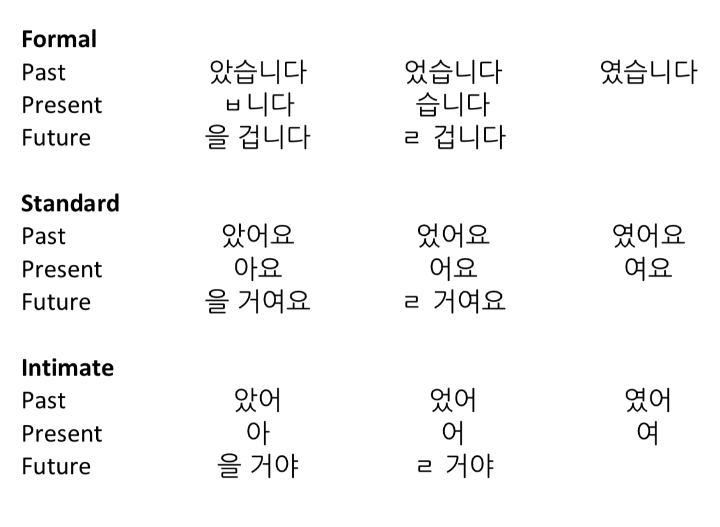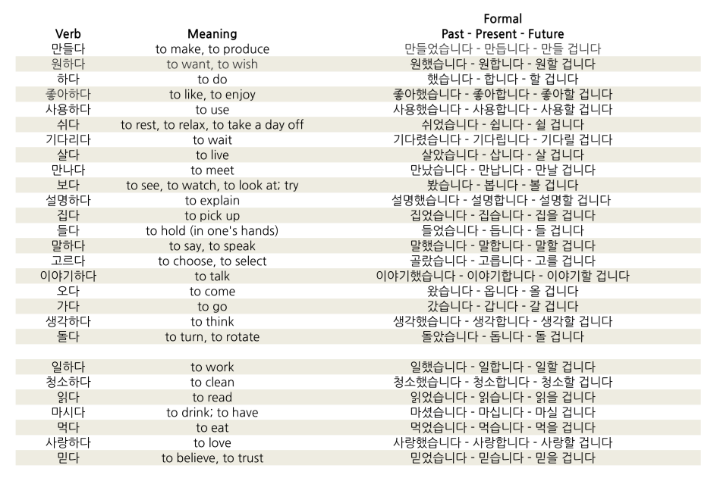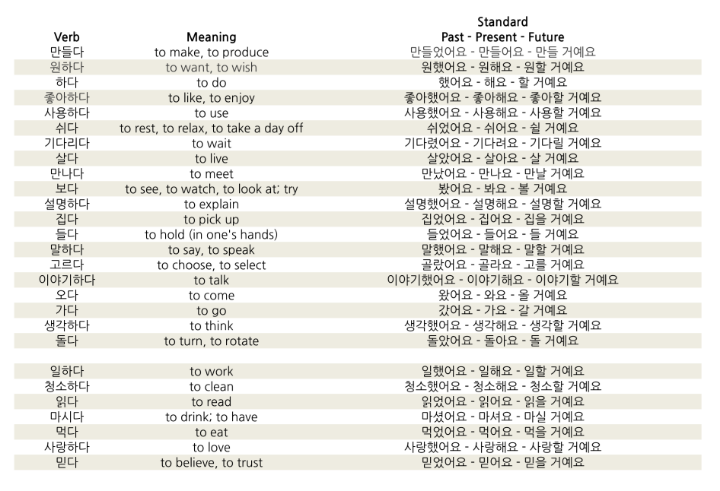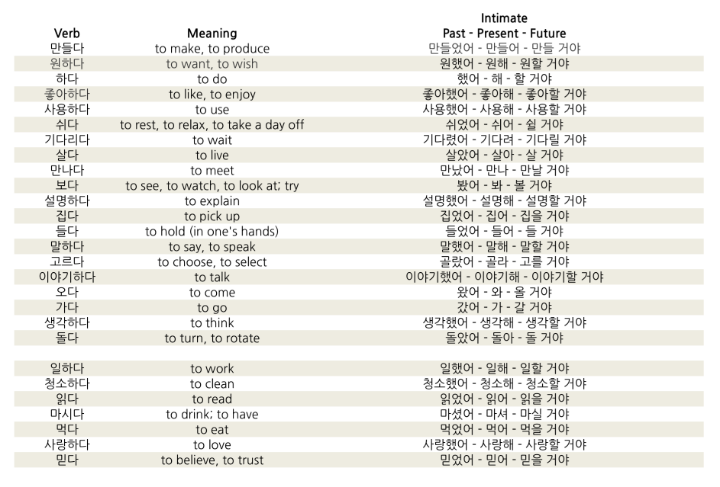UPDATE: I'm going through trying to find everything and putting it together but it would be helpful to have what I say below already in one location.
After learning the alphabet, hangul, and some other basic stuff, my next step is to study verbs. A lot of the information I am looking for is scattered throughout the site, and it would be nice to have in one place as a chart. What I would find helpful right now is a chart in a format similar to the following:
----------------------------------------------------------------------------------------------
infinitive
verb stem
present formal ending (when verb stem ends in consonant; when verb stem ends in vowel)
present standard ending (when verb stem ends in consonant; when verb stem ends in vowel)
present intimate ending (when verb stem ends in consonant; when verb stem ends in vowel)
past formal ending (when verb stem ends in consonant; when verb stem ends in vowel)
past standard ending (when verb stem ends in consonant; when verb stem ends in vowel)
past intimate ending (when verb stem ends in consonant; when verb stem ends in vowel)
future formal ending (when verb stem ends in consonant; when verb stem ends in vowel)
future standard ending (when verb stem ends in consonant; when verb stem ends in vowel)
future intimate ending (when verb stem ends in consonant; when verb stem ends in vowel)
----------------------------------------------------------------------------------------------
I realize the verb conjugation chart on the site gives a few examples, but instead of providing the endings alone to be attached to the verb stems, it just adds the endings directly to the verb stems, creating sound changes which are hard to analyze and avoid error. Adding the audio and romanization to my suggested chart above will help learn the sound changes easier than just trying to remember all the sound change rules. It would be awesome to have a chart with as many verbs as possible so there is absolutely no question as to what the verb stem is and what endings to add to the stems for all tenses and all politeness levels. Pointing out any exceptions to the patters would be useful as well.
My goal is not to just build my vocabulary by memorizing verbs, but to build my vocabulary through reading. In order to do this, I need to be able to break down verbs in my reading into verb stems and tense/politeness endings. This can be difficult without the exact endings being given before any potential sound changes occur when the endings are connected to the stems.
This is my suggestion which would really help me and perhaps others as well. I am a systematic learner so memorizing the patterns found in charts is very useful to me. Thank you!
Lessons

Your Next Lesson

First Encounters
Throwback Thursday
Learn about greeting someone for the first time
Congratulations! You've finished everything on your pathway.
Add a new path?






